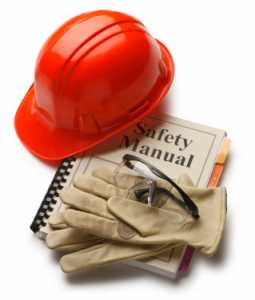Health and safety best practice for forklift trucks
Forklift trucks are a widely used, indispensible piece of plant machinery. However, without proper safe usage it is easy to cause an accident and cause serious injury to yourself or a bystander. Accidents can have many root causes – such as lack of operator training or experience, lack of equipment knowledge, poor truck maintenance or poor working environments – but by meeting legislative requirements and best practice, you can vastly reduce the likelihood of disaster. Let’s take a look at some health and safety requirements and best practices for using forklifts.

Health and safety legislation
There are seven main pieces of legislation related to operating forklifts safely in the UK:
- Health and Safety at Work Act (1974): ensures employers, and employees, take reasonable steps to ensure the health and safety of staff at work.
- Management of Health and Safety at Work Regulations (1999): requires a suitable risk assessment of potential workplace hazards to be carried out.
- Provision and Use of Work Equipment Regulations (1998): requires appropriate work equipment to be provided which is regularly maintained by a professional.
- Lifting Operations and Lifting Equipment Regulations (1998): requires lift truck operations to be competently planned, suitably supervised and carried out safely with appropriate equipment.
- Workplace (Health, Safety and Welfare) Regulations (1992): requirements for making the place of work safe for operating machinery. Includes well-organised traffic routes, good lighting, good floor surfacing and safe doorways.
- Control of Substances Hazardous to Health Regulations (2002): requires suitable risk assessments for working with hazardous materials (e.g. exhaust fumes, fuel, battery acid) and necessary control measures to be established. Employees should be aware of these, and first aid facilities.
- Construction (Design and Management) Regulations (2007): provides outlines for a minimum level of initial training.
Best practice
The requirements set out by law inform forklift operation best practices. We can split these into three sections:
Training
- Operators should be competent and fully trained by an accredited trainer; untrained individuals should not use forklifts
- Operators cannot be under the age of 16
- Operators should only use trucks they have had training and received qualifications for
- Monitoring of operators and refresher courses should be carried out periodically to ensure continued competency
Maintenance
- Forklift checks should be carried out before commencing a shift
- Faulty machinery should not be used and issues should be fixed as soon as possible
- Routine maintenance and servicing is carried out by a competent individual
- Forklifts have regular ‘thorough examinations’, the dates of which are clearly displayed
Operations
- Always use the most appropriate truck for the task at hand
- Keep bystanders and pedestrians away from forklifts in operation
- Signage and floor/road markings are clear and well-maintained
- Forklift operating areas are kept clear and tidy
Euro 1 Training provide high quality training for a variety of plant machinery, including several types of forklift. Our comprehensive courses are the ideal start to becoming a competent operator and will see you receive certification for your chosen piece of machinery. Our training courses are ideal for clients throughout Sheffield, Wakefield and Goole and are led by experienced professionals with hands-on industry expertise. Get in touch with our friendly team today with any enquiries, or to book on to one of our courses.
